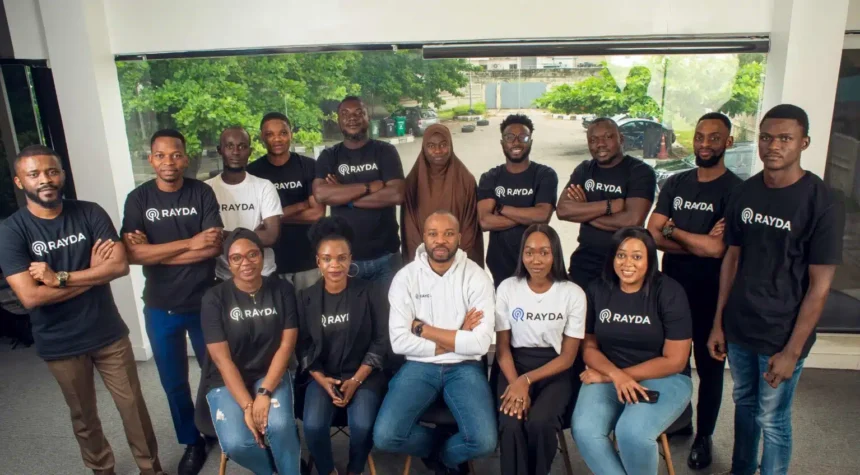Nigerian startup, Rayda, is helping global companies buy, store, manage, and recover IT equipment for employees across multiple countries.
Founded by Francis Osifo in 2022, the startup addresses the challenges of sourcing and deploying IT hardware for distributed teams.
By building partnerships in over 170 countries, Rayda enables businesses to streamline procurement, logistics, warehousing, and asset recovery, while maintaining competitive pricing and compliance with local regulations.
“The thesis was that eventually, we would do everything else, but we wanted to build that one platform where companies could get visibility into all of their assets because we didn’t have that visibility,” Osifo told Techpoint Africa.
The Birth of Rayda
Osifo founded Rayda with a vision to solve operational challenges. The startup initially aimed to provide a fixed asset management platform for businesses, offering visibility into company assets, tracking purchases, and managing lifecycle data.
“For a company that is growing really quickly where you are tracking all of the stuff that you’re buying, you can’t properly track everything,” Osifo shared.
Early traction came from startups like Curacel, Mira, and Ajocard, with Rayda generating over $15,000 in monthly revenue. However, convincing clients to move away from Excel sheets proved challenging.
Understanding the Forced Pivot
For startups relying on foreign-sourced inputs or reporting revenue in dollars to investors, the floating of the Naira by the Central Bank of Nigeria in 2023 created significant financial strain.
Rayda’s naira-denominated revenue was growing locally, but when converted to dollars for venture capital reporting, it appeared to decline. Many clients, also affected by the devaluation, missed payments or cancelled subscriptions.
To counter declining revenue, Rayda began developing new products based on customer feedback. Among these, a tracking tool for IT equipment showed promise.
What You Should Know
In June 2024, Rayda increased marketing efforts with a focus on search engine optimization (SEO). The strategy began to pay off, attracting inquiries from companies in the United Kingdom and the United States about managing physical assets.
The breakthrough came when a fintech client needed laptops for a Nigerian hire. The supplier quoted $3,000 with a 12-week delivery timeline. Rayda sourced the laptop locally in just two days, saving up to 60% of the cost.
That first successful deployment sparked a surge of international demand. Over subsequent weeks, Rayda said it helped the fintech deploy equipment across Nigeria and South Africa and received inbound requests from global companies including Binance and Semrush.
By August 2024, Rayda pivoted fully to IT equipment sourcing, deprioritizing all other products.
How Rayda Works
Currently, Rayda helps companies with distributed teams buy, store, manage, and recover IT equipment. Operating from Nigeria, Rayda has established partnerships with local providers in over 170 countries across Africa, Asia, and Latin America.
These relationships support equipment sourcing, warehousing, and retrieval when employees leave companies.
“What we’ve done is build out the warehousing, the logistics, and the OEM relationships in these countries and then create a playbook that makes all of these work seamlessly [so] that the customer doesn’t know the magic that happens,” Osifo said.
The company says revenue comes from monthly subscription fees per employee, device markups, and warehousing fees, with contracts often lasting up to three years.
Knowing the Market
The global IT asset deployment and management market is valued at over $4 billion, driven by the need to efficiently manage cross-border logistics, customs, compliance, and employee onboarding for companies with international teams.
Rayda taps into this market by offering end-to-end solutions, from procurement to delivery to lifecycle management.
According to industry experts, Rayda’s journey demonstrates how African startups can scale globally from relatively small beginnings.
Analysts added that Rayda exemplifies how African entrepreneurs are solving worldwide problems while positioning Africa as a hub for innovative, globally relevant solutions.
Talking Points
At Techparley, we see Rayda as solving a critical operational challenge for global companies: sourcing, managing, and recovering IT equipment for employees across multiple countries.
This service goes beyond simple procurement. It allows businesses to efficiently handle logistics, compliance, warehousing, and device lifecycle management without investing in complex international operations.
Rayda’s pivot from local asset management to international equipment sourcing demonstrates how African startups can quickly adapt to market shifts and identify global opportunities from local problems.
By building partnerships in over 170 countries, Rayda provides seamless solutions that save companies time and cost while maintaining visibility and control over their IT assets.
For startups and international companies alike, Rayda’s approach highlights the potential for African-built solutions to serve global markets, showing that operational excellence and innovative business models can scale beyond borders.






